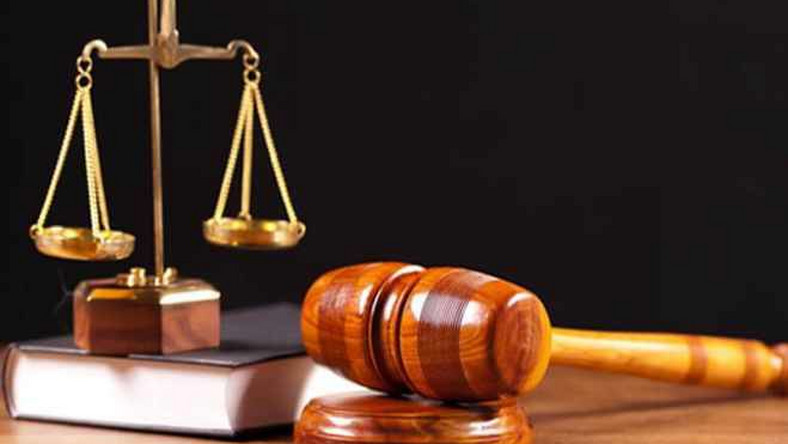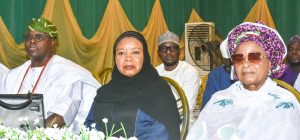
He stated that the judiciary’s responsibility to adjudicate on electoral disputes, constitutional interpretation, and protection of fundamental rights has placed it under intense scrutiny.
The Attorney-General emphasised the need for the judiciary to be principled, independent, and impartial, delivering justice transparently, consistently, and with intellectual rigor, noting that the judiciary’s strength lies not in the volume of its judgments but in their clarity, coherence, and courage.
He said, “Recently, the role of our judiciary in consolidating our democracy has aroused much public interest and discussion. It is a universal truism that the judiciary sustains the rule of law, which is the bedrock of our democracy. Over the years, the judiciary has increasingly been called upon to adjudicate on matters that strike at the heart of our democracy—electoral disputes, constitutional interpretation, protection of fundamental rights, and other legal or public policy matters. Yet, this rising responsibility has firmly placed the judiciary in the court of public opinion.
“It is quite concerning to see the adverse ratings and negative perception indexes of our judiciary. Public confidence in the judiciary has been shaken by perceptions of undue influence, inconsistent rulings, and delays that frustrate justice. Allegations of corruption, though often unproven, cast long shadows. While I agree that the judiciary should be accountable less to public opinion and more to public interest, may I respectfully insist that in this climate, the judiciary should discharge that accountability by being principled, independent and impartial. It must not only deliver justice—it must do so transparently, consistently, and with intellectual rigour. It is therefore the responsibility of everyone present here and beyond to ensure that, like Caesar’s wife, the judiciary is above reproach and suspicion. I wholly adopt the admonition of my Lord, Kekere-Ekun, JSC (as he then was), that it is the role of the court in the administration of justice to provide a conducive atmosphere for both parties – see BABAGANA HAMIDU v. THE STATE (2024) LPELR-62503(SC) (P. 24, paras. B-D)”
He urged that, “Let our judgments be written not only for lawyers, but for the citizens whose lives they shape to preserve public trust and sustain the common man’s last hope. I humbly pray that Your Lordship, the Chief Justice of Nigeria, will cause ongoing reforms to gain momentum in the new legal year.”
The Attorney-General expressed concern over adverse ratings and negative perceptions of the judiciary, citing perceptions of undue influence, inconsistent rulings, and delays that frustrate justice.
Fagbemi emphasised the importance of collaboration between the Federal Ministry of Justice and other stakeholders, including state governments, to advance justice sector reforms.
He highlighted the adoption of the National Justice Policy as a framework for driving constitutional, statutory, and institutional reforms of the justice sector.
Fagbemi continued, “On my honour, I wish to affirm that my Office remains committed to working with the judiciary and other stakeholders in the justice sector to advance reforms that will elevate the standard of justice delivery in Nigeria. I support the ongoing administrative and legislative interventions, which include strategic and constant capacity building, strengthening institutional safeguards for judicial independence, and case management reforms to reduce delays and improve access to justice. Your Lordships, I must emphasise that at this juncture the operations and proceedings of the Supreme Court ought to have become fully digitised or automated.
“I respectfully urge the National Judicial Council and the various Heads of Courts to accord topmost priority to full deployment of technology in the running of our courts to enhance case management. While our quest for judicial reform is not limited to infrastructure, digitisation, and procedural efficiency, the reforms must extend to our legal philosophy and culture, how we conceive, pursue, and achieve justice. It is our abiding duty to continue to evolve a legal system that serves a modern and informed society.”
In addition, he expressed concern over the increasing number of complaints against senior members of the Nigerian Bar, noting that these complaints border on professional misconduct and could damage the reputation of the prestigious rank of SAN.
Fagbemi emphasised that the complaints, although few, are troubling and require urgent attention to prevent damage to the legal profession’s reputation.
He stressed that the rank of Senior Advocate of Nigeria should not confer immunity from disciplinary measures for professional misconduct, advocating for equal treatment of all lawyers.
The AGF highlighted the importance of maintaining the integrity of the legal profession, both locally and internationally, citing recent cases that have brought the profession into disrepute.
“This brings me to a matter that should be of concern to us all: my office has, in recent times, taken note of the increasing number of complaints against senior members of the bar. Thankfully, these are few and far between, but they still constitute such numbers as to be troubling. The complaints border on professional misconduct and, if not addressed urgently, are capable of bringing this prestigious rank into disrepute locally and, as we have seen recently, internationally. We need to reverse the perception that the rank of Senior Advocate of Nigeria confers immunity from disciplinary measures for professional misconduct. We simply cannot have a Bar where one law applies to juniors and another to seniors,” Fagbemi added.
He congratulated the 57 new Senior Advocates of Nigeria, reminding them of their additional responsibilities, including upholding ethical standards, professional excellence, and best practices.
“To all the 57 new silks, I offer my warmest congratulations and welcome you to the elite advocacy corps of the legal profession in Nigeria. You have earned this honour through years of excellence and integrity. But with this rank comes a solemn duty—to be architects of reform, defenders of judicial clarity, and mentors in the art of legal reasoning. In entering this profession and on being further admitted to the inner Bar with all the privileges attaching to the status, we become ambassadors of the finest tradition of Africa’s largest Bar,” Fagbemi added.




Excellent beat ! I would like to apprentice while you amend your web site, how
can i subscribe for a blog web site? The account helped me a acceptable deal.
I had been a little bit acquainted of this your broadcast
provided bright clear idea
Hey! I know this is kinda off topic but I was wondering if
you knew where I could get a captcha plugin for my comment form?
I’m using the same blog platform as yours and I’m having trouble finding one?
Thanks a lot!
kuwin sở hữu kho game đa dạng từ slot đến trò chơi bài đổi thưởng, mang đến cho bạn những giây phút giải trí tuyệt vời.
Tham gia cộng đồng game thủ tại Go88 để trải nghiệm các trò chơi bài, poker phổ biến nhất hiện nay.
利用强大的谷歌蜘蛛池技术,大幅提升网站收录效率与页面抓取频率。谷歌蜘蛛池
Với giao diện mượt mà và ưu đãi hấp dẫn, MM88 là lựa chọn lý tưởng cho các tín đồ giải trí trực tuyến.
搭载智能站群程序,自动化搭建与管理,为SEO项目提供核心驱动力。站群程序
iwin – nền tảng game bài đổi thưởng uy tín, nơi bạn có thể thử vận may và tận hưởng nhiều tựa game hấp
搭载智能站群程序,自动化搭建与管理,为SEO项目提供核心驱动力。站群程序
Tham gia cộng đồng game thủ tại Go88 để trải nghiệm các trò chơi bài, poker phổ biến nhất hiện nay.
Khám phá thế giới giải trí trực tuyến đỉnh cao tại MM88, nơi mang đến những trải nghiệm cá cược thể thao và casino sống động.
ارائه خدمات حرفه ای مخصوص احراز هویت و وریفای صرافی های بایننس و بای بیت و کوین بیس و اوکی ایکس و کراکن با مدارک معتبر توسط شوپی ویژه ایرانیان
kuwin sở hữu kho game đa dạng từ slot đến trò chơi bài đổi thưởng, mang đến cho bạn những giây phút giải trí tuyệt vời.
kuwin sở hữu kho game đa dạng từ slot đến trò chơi bài đổi thưởng, mang đến cho bạn những giây phút giải trí tuyệt vời.
هزینه تبلیغات کلیکی گوگل (Google Ads) سرسامآور شده و تا شارژتون تموم شه، ورودی هم قطع میشه. اما سئو یک دارایی همیشگیه. پکیج رتبه اول ادزنو در مقایسه با هزینهای که باید سالانه به گوگل ادز بدید، واقعاً “مفت” تموم میشه. یک بار هزینه میکنید و مدتها از ورودی ارگانیک لذت میبرید. به نظرم هوشمندانهترین کار، جایگزینی تبلیغات با خرید جایگاه اول گوگل به صورت طبیعی هست.
با وجود تحریمها، خیلی از سرویسهای خارجی شمارههای ایران را قبول نمیکنند. اما با سیم کارت انگلستان فعال در ایران از شوپی به راحتی از این محدودیتها عبور میکنید. سیمکارت شما فیزیکی است، در ایران آنتن دارد و فوراً پیامک تایید از هر سرویس جهانی را دریافت میکند.
Crypto Casino Australia Real Money Secret Fortune Builder
2026足球新闻:英超六队欧冠晋级基本锁定,纽卡大胜卡拉巴赫创历史,最新足球赛事比分英超欧战强势。
唐宫奇案之青雾风鸣2026 白鹿主演古装悬疑 高清探案解谜 海外华人首选